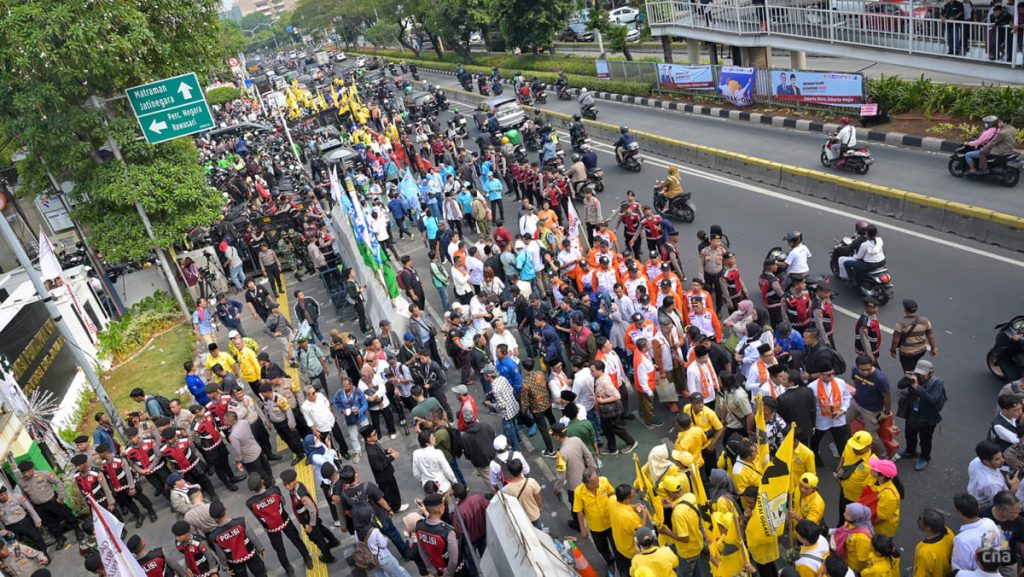Following public outcry, the legislature has decided not to make changes to election rules under the current government’s term. Meanwhile, concerns have been raised about President Joko Widodo’s attempts to influence local elections in order to maintain his influence after stepping down from the presidency. A grand coalition known as the Advanced Indonesia Coalition, which supported Prabowo Subianto and Gibran Rakabuming during the presidential election, includes parties such as Golkar, Gerindra, the Democratic Party, and the National Mandate Party.
However, the National Democratic Party, National Awakening Party, and Prosperous Justice Party have joined the Advanced Indonesia Coalition, leaving the Indonesian Democratic Party of Struggle (PDI-P) without a national coalition. These three parties previously supported Anies Baswedan as a presidential candidate, who lost to Prabowo in the presidential election. Despite this, political parties may still form regional coalitions for the upcoming local elections in November.
Law lecturer Mdm Titi has pointed out that President Widodo is trying to replicate the Advanced Indonesia Coalition’s success in the upcoming regional elections by influencing various political parties. She has highlighted the dominance and control that Widodo still holds despite ending his term as president, and expressed concerns about efforts to duplicate the grand coalition for the local elections. The nomination of Golkar member Ridwan Kamil and PKS member Suswono in the Jakarta regional elections has been cited as an example of attempts to limit chances for potential candidates not affiliated with political parties.
The duo, who are backed by a coalition of at least 13 parties, have been paired in the Jakarta regional elections despite Kamil having a higher electability rating in West Java. Mdm Titi believes that this pairing was a strategic move to prevent non-party-affiliated candidates from running in the gubernatorial election in Jakarta. The controversy surrounding the regional elections stems from concerns about President Widodo’s continued influence and efforts to replicate the success of the Advanced Indonesia Coalition at the local level.
Overall, the political landscape in Indonesia is undergoing significant changes leading up to the local elections in November. The decision not to change election rules, the formation of the Advanced Indonesia Coalition, and concerns about President Widodo’s influence in the upcoming regional elections have all contributed to a complex and dynamic political environment. As various parties align themselves in different coalitions, the outcomes of the local elections remain uncertain, with implications for the future of Indonesia’s political landscape.


